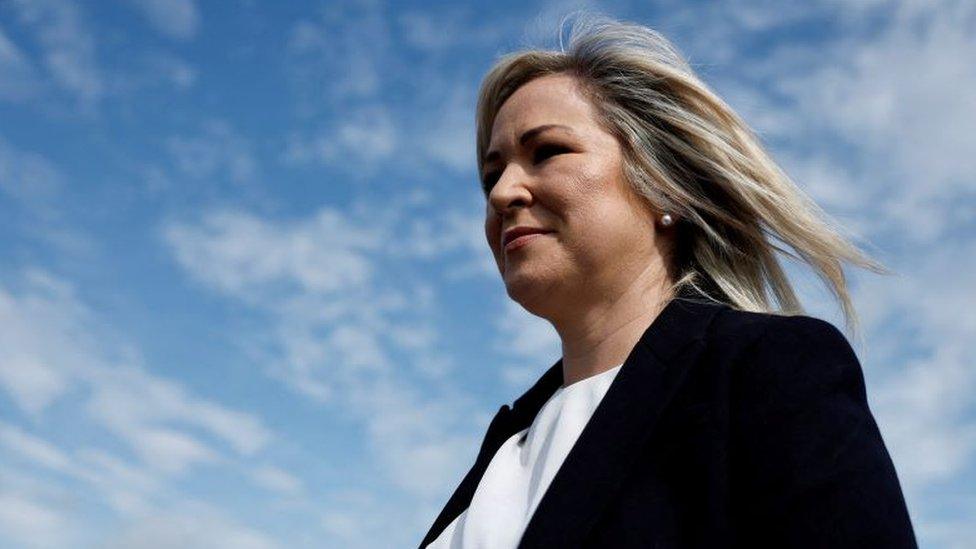Changed times for unionism in Londonderry?
- Published
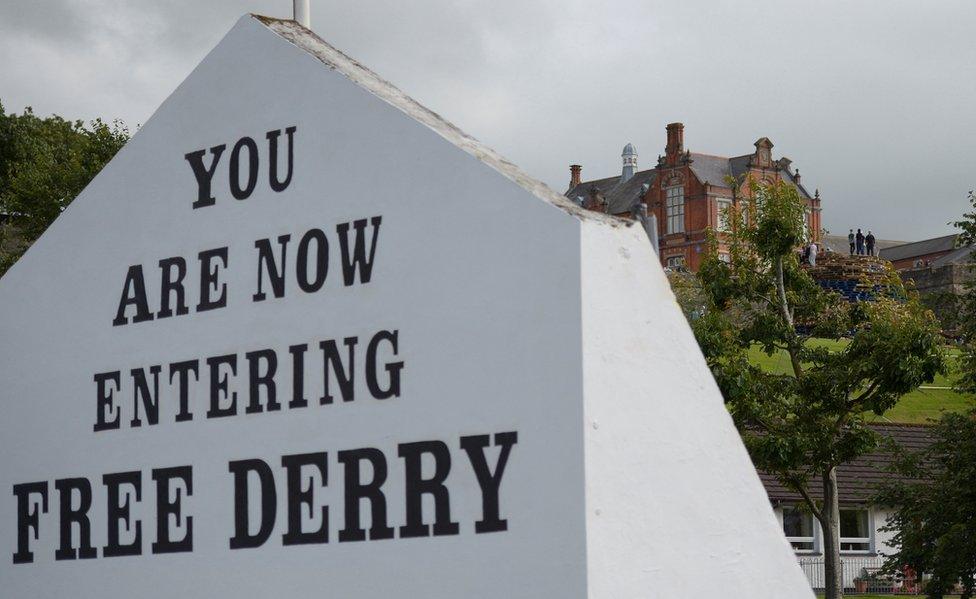
Where there are winners there will always be losers. Politics is no different.
Northern Ireland's recent council elections delivered significant gains for Sinn Féin, including in Derry City and Strabane District Council where the party secured almost half of the available seats.
These results have also underscored the changing electoral fortunes of unionism within the city and prompted a debate about the allocation of council positions.
Following a decision by Sinn Féin, and in a break with recent tradition, there will not be a unionist mayor in the four-year council term.
It is widely accepted that Derry is where the Troubles began, when a banned civil rights march was attacked by the Royal Ulster Constabulary - a police force made up largely of Protestants in a city with a clear Catholic majority - at Duke Street on 5 October 1968.
The images of police officers hitting civilians with batons were beamed around the world, making Derry headline news.
It is a city where the Catholic community has always been in the majority but where the Protestant/unionist minority held political power for decades.
They did so through a system called gerrymandering, the manipulation of electoral boundaries in ways designed to ensure that a particular group - in this case the unionist minority - retained the majority of seats and decision-making authority.
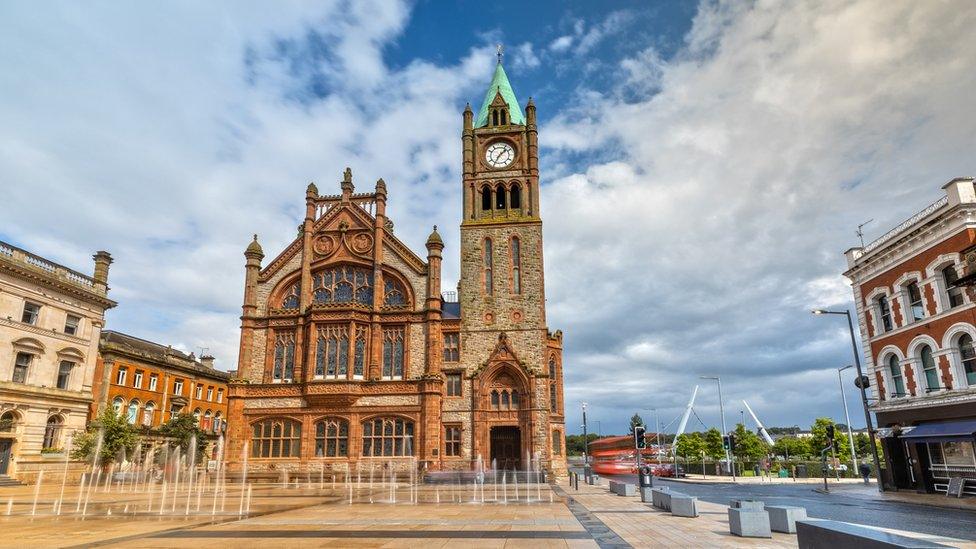
Unionism's political might in the Guildhall in Derry has diminished over the decades
At one stage, from the late 1800s, Catholics were even forbidden from living within the walls of the historic city and instead settled in what became known as the Bogside, where large families crammed into small, dilapidated houses and the living conditions were often rudimentary.
It was there on 30 January 1972 that civil rights marchers were attacked again, this time with deadly consequences.
Thirteen unarmed people were shot dead by members of the Army's Parachute Regiment on what became one of the darkest days for the city - Bloody Sunday.
But when local government was reformed two years later the council in a city that was divided along sectarian lines became a model for power-sharing, with nationalists and unionists rotating the position of mayor at a time when other councils stubbornly refused to do so.
That remained the case for what remained of the Troubles and despite the many political changes that followed.
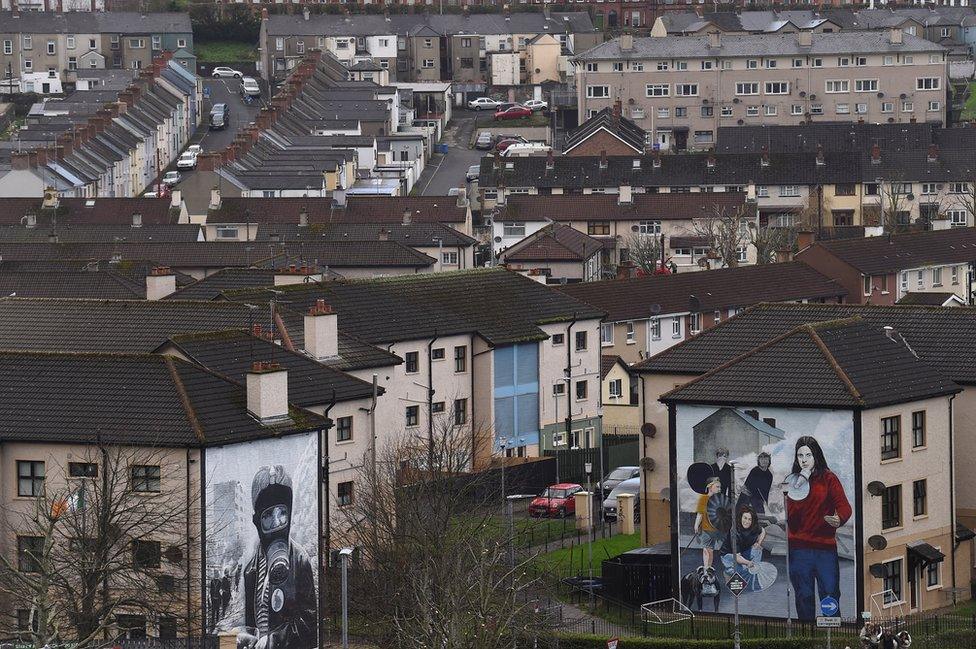
A better turnout of voters in areas such as the Bogside has added to the strength of nationalism and republicanism
In the election for Derry City and Strabane District Council last month, Sinn Féin was the big winner with 18 seats out of the total of 40.
Under the system known as d'Hondt - which ensures the proportionate allocation of council positions - Sinn Féin was entitled to nominate a mayor in three of the four years of the new council term. The SDLP as the next-largest party is entitled to this position in the remaining year.
The fact that there won't be a mayor from the unionist tradition reflects how people voted and the size of different parties on the council. But it also marks a change in how things have been done and led to differing opinions about what it means - and how it's perceived.
The SDLP leader, Colum Eastwood MP, tweeted, external: "Would it really have hurt Sinn Féin to give unionism one Mayor out of three?
"The SDLP have led the way for decades on this. If others are serious about winning the debate on the future then they should look at the example set by the SDLP in Derry. Selfish party interest shouldn't come in to it."
Some unionists have also expressed concerns.
Terry Wright is a unionist blogger and former chairman of the Ulster Unionist Party in Foyle.
He said: "The latest decision by Sinn Féin which is now the largest party on Derry City and Strabane District Council, to end the convention of power-sharing that has been in place since the 1970s, may serve to consign it to the dustbin in terms of good relations and community cohesion.
"A decision that acts to marginalise will serve only to transform existing good practice into an oppressive and narrow socio-political everyday entitlement process with minorities left like an envelope with no address."
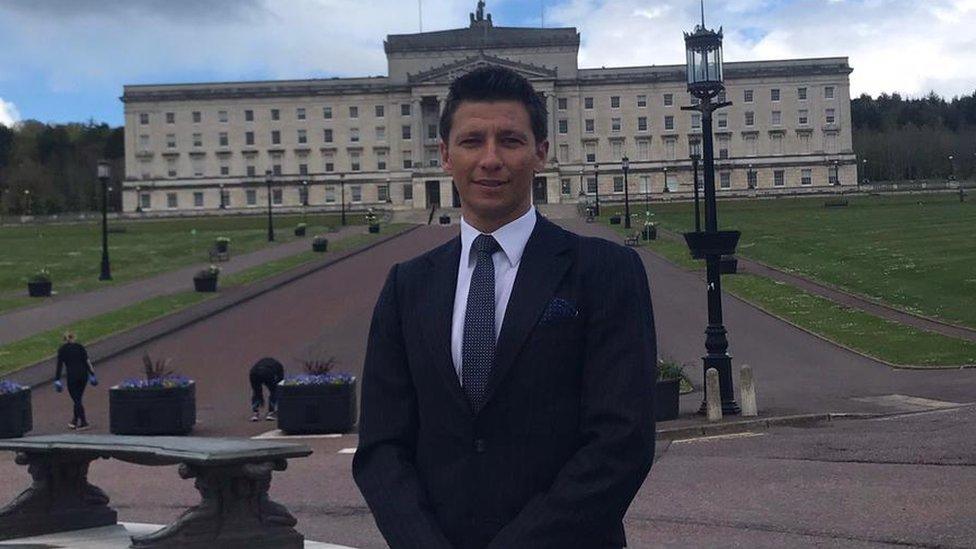
Cllr McCready was re-elected to the council in May
But other unionists have an alternative view, suggesting that Sinn Féin's decision is democracy in action. Ryan McCready has just been re-elected as an Ulster Unionist councillor in the city.
"This is a direct consequence of democracy, to which said parties are rightly entitled to positions of responsibility," he said.
"Electoral inaction and apathy from pro-union voters also has consequences which are reflected on voter turnout resulting in a [overall] reduced pro-union vote share in the city and district. This is not a fault of the people, but instead the fault lies with pro-union politicians which includes me."
Not only will Derry not have a unionist mayor over the next four years but once again it doesn't have a single unionist councillor on the city's West Bank - something that reflects population shifts over time and the fact that there were no unionist candidates on this side of the River Foyle.
The new Sinn Féin mayor, Patricia Logue, has emphasised that she will be a mayor for all, representing both sides of the community equally.
"Our council run the d'hondt system which is an agreed system. It is fair and equitable," she added.
"I do believe the unionists have the deputy mayor position on a number of occasions and my office will be open to everyone. I will be listening.
"A mayor for all doesn't need to come from one single grouping."
When asked how she intended to reach out to the unionist community, Cllr Logue said her door will be open.
"This is an open invite. All they have to do ring the mayor's office. I will talk to anybody from anywhere and I will be listening."
This article has been re-worked and updated for clarity and context.
- Published6 June 2023
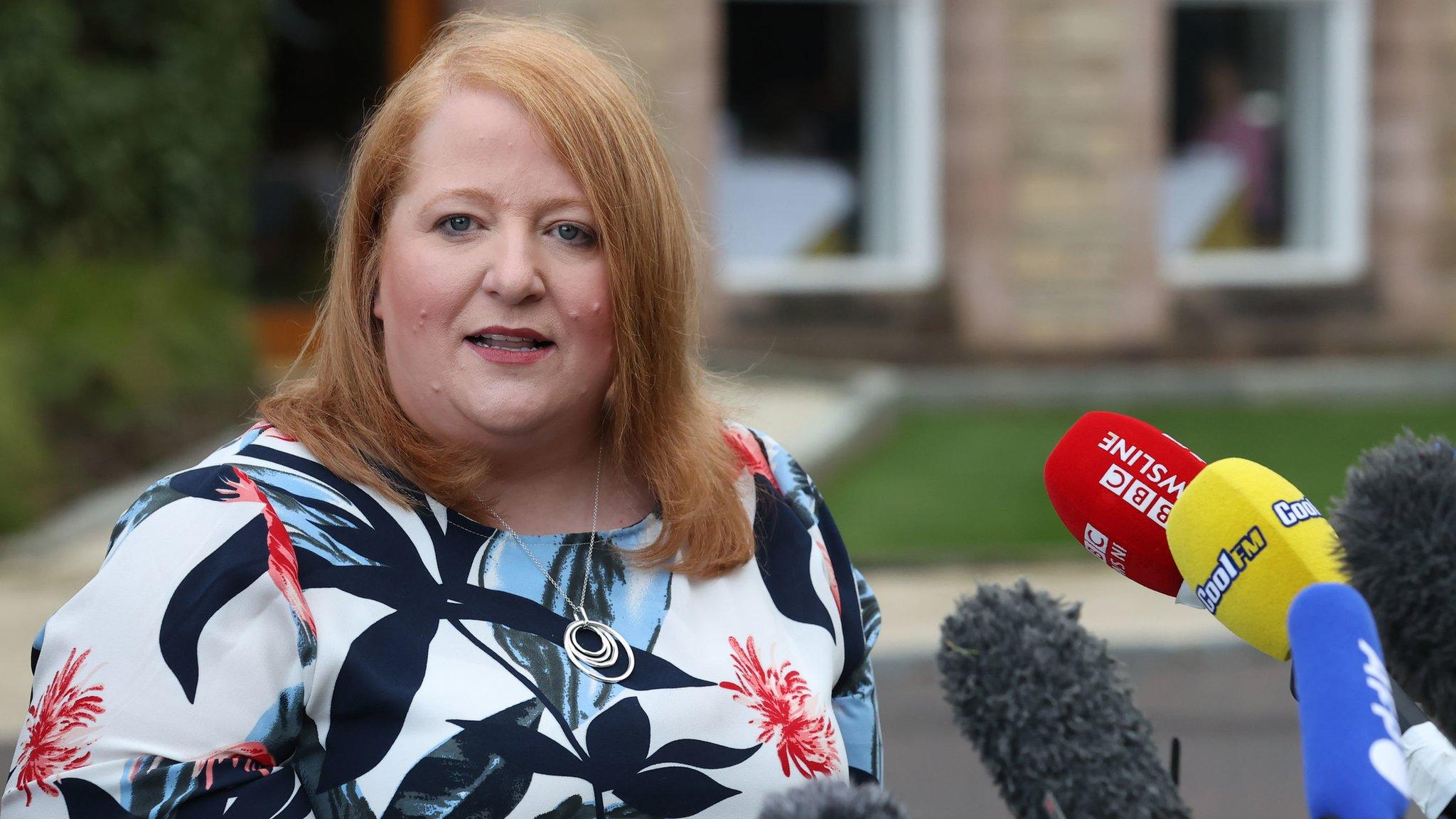
- Published21 May 2023
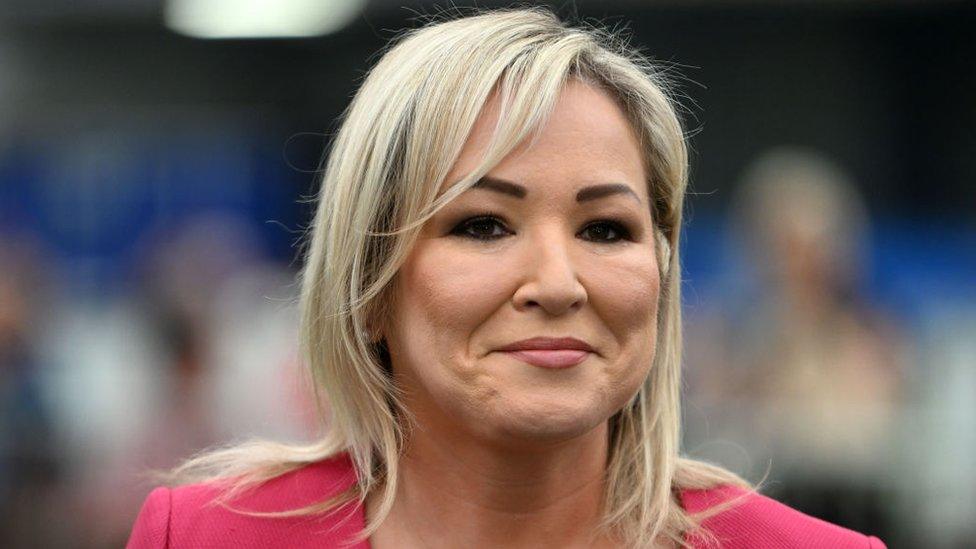
- Published21 May 2023
